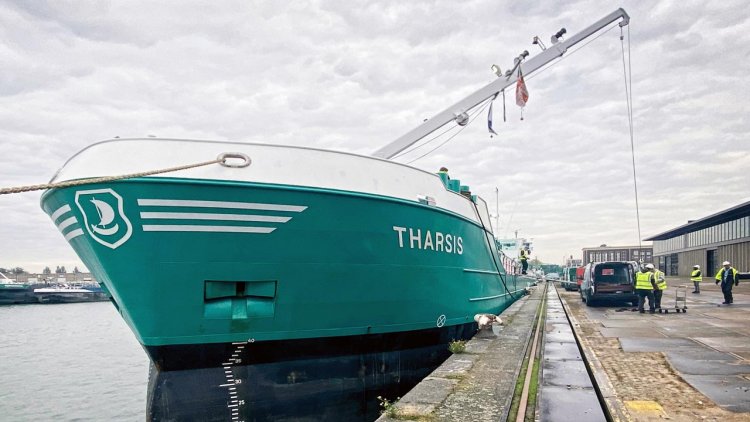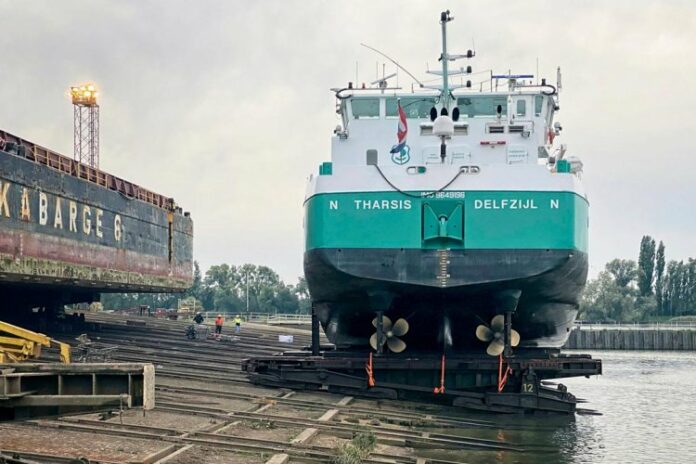Having acquired a minority stake in Marine Performance Systems B.V., a Rotterdam-based maritime technology company, Alfa Laval will be instrumental in making this long-sought technology a commercial reality.
The idea of using bubbles to reduce a vessel’s friction – which is the largest driver of fuel consumption as it moves through the water – has existed for well over a century. Nonetheless, it has taken time to realize. Alfa Laval has chosen to invest in Marine Performance Systems, whose unique method of producing bubbles with fluidics is a breakthrough that will reduce fuel consumption by 8–12% at a vessel’s normal service speed.
Frode Lundsteen Hansen, who founded Marine Performance Systems in 2018 with innovators Pieter Kapteijn and Fulko Roos, says:
“The use of fluidics creates a larger air layer of superior quality. Our FluidicAL technology enables truly effective air lubrication, with immediate environmental benefits and substantial savings for shipowners. Alfa Laval shares our belief that this technology will facilitate the transition to green shipping.”
Sameer Kalra, President, Alfa Laval Marine Division, says:
“The investment brings Alfa Laval full circle, since air lubrication technology for marine vessels was first pursued and patented by our founder Gustav de Laval in 1883. The technology did not result in any product in his time, but our founder’s vision has new importance today. Air lubrication will smooth the marine industry’s path to a sustainable future.”
By reducing the amount of fuel burned, air lubrication will have a direct effect on greenhouse gas emissions. In addition, it will provide critical fuel cost savings for shipowners, who need to offset the expense of rapidly shrinking their environmental footprint.

Lundsteen Hansen explains:
“Fleets cannot be replaced overnight, so existing vessels will need to rely on clean-burning fuels to lower their emissions. In a low-margin industry where fuel represents up to 60% of a shipowner’s costs, the premium price of those fuels is a heavy burden. With very small means, air lubrication can provide significant relief.”
Indeed, the patented FluidicAL technology requires no structural modifications or vessel recertification, which makes it ideal for retrofitting as well as for newbuilds. Compatible with any vessel size and any fuel type, it comprises evenly spaced bands of oscillators under the vessel’s hull. Using high-efficiency fluidics, each oscillator produces tens of thousands of microbubbles per second, creating a stable, uniform layer of air that significantly reduces friction between the hull and the water beneath.
The high performance of FluidicAL technology and its ability to operate in various conditions have already been demonstrated at full scale. In late 2020, a pilot installation was made on the general cargo vessel M/V Tharsis, with excellent results and clear savings over months of operation.
Lundsteen Hansen says:
“With our FluidicAL solution in place, M/V Tharsis made 25 controlled runs in loaded and ballast conditions. As expected, there was a 60% reduction in specific drag over hull’s flat area, which meant considerably less fuel was consumed. Not only was there no impact on stability or manoeuvrability, the sailing was also noticeably smoother.”



